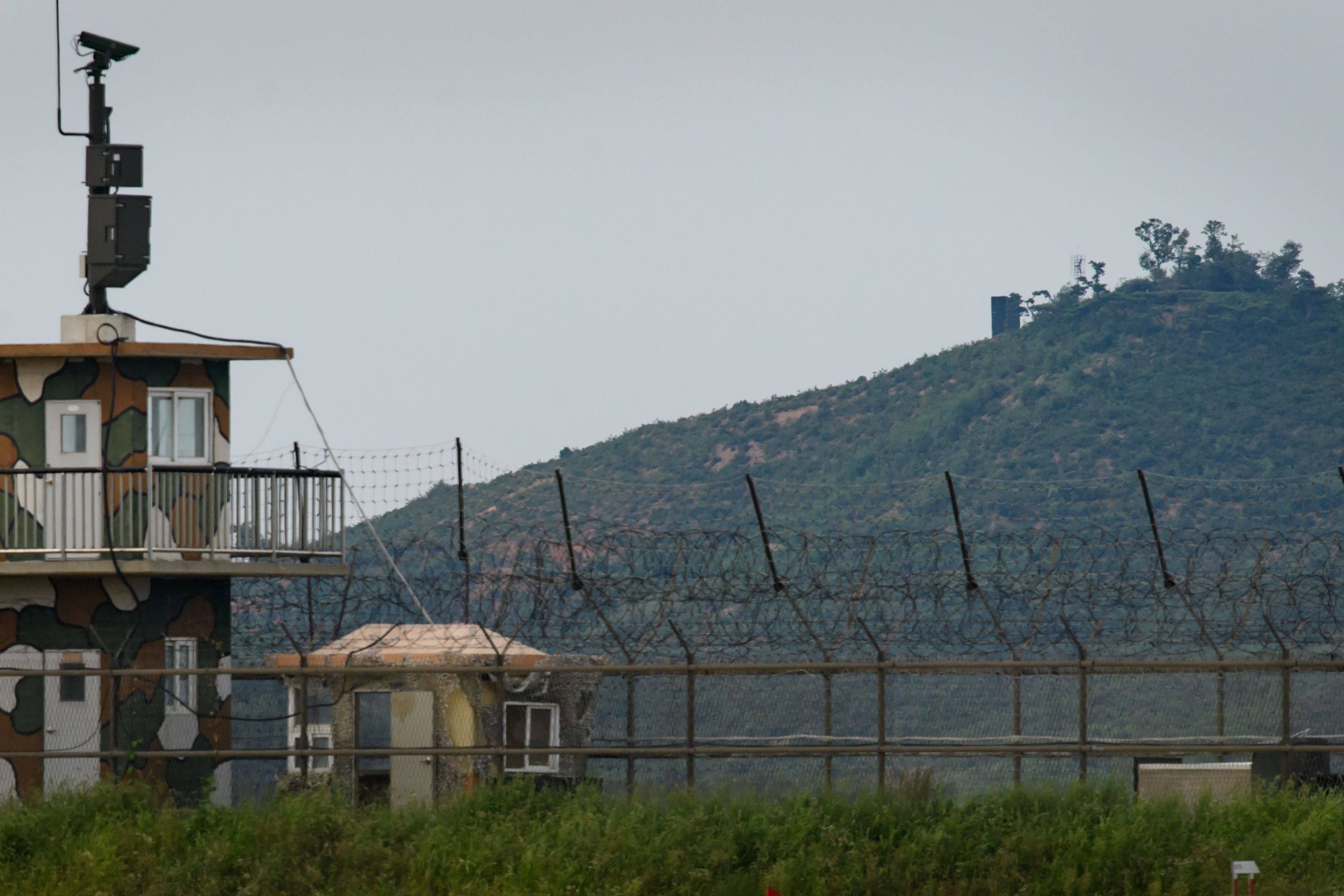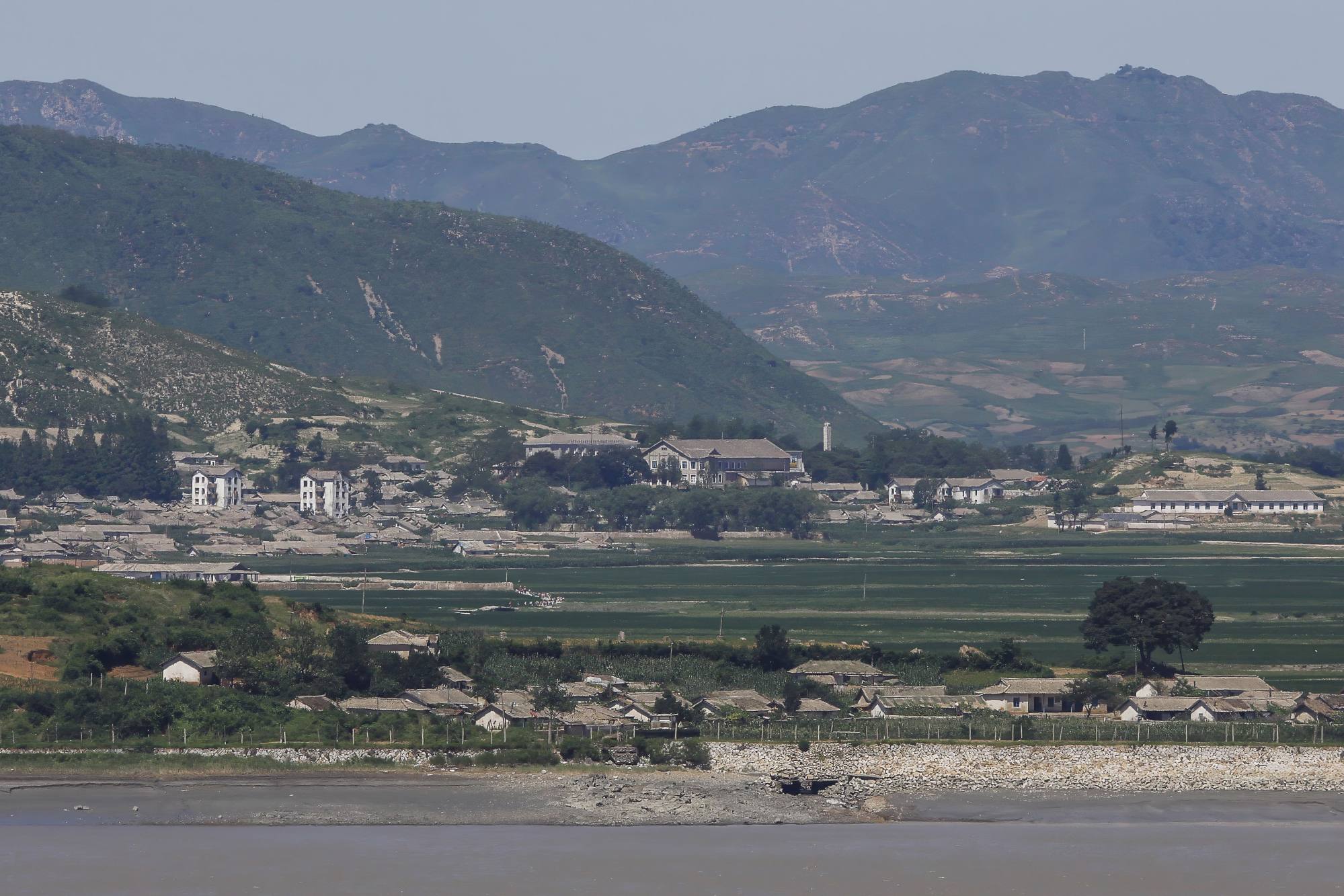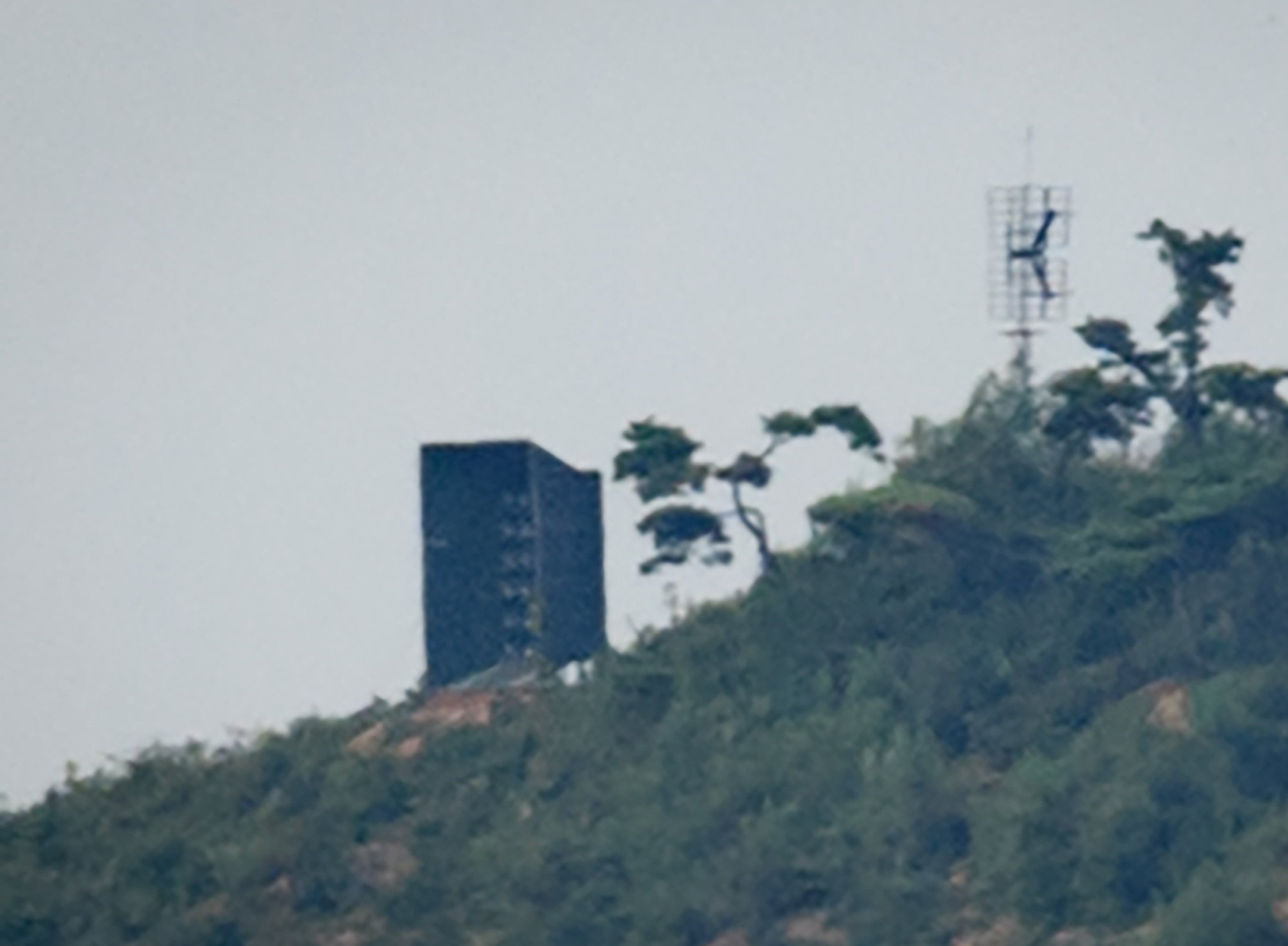South Korean border town fights North Korea’s sinister sound assault with noise map
North Korea has been broadcasting sinister noises almost daily from loudspeakers along the border since July, when tensions between the neighbours intensified

South Korea’s Ganghwa County, whose closest point is just 1.8km (1.1 mile) from North Korea, is creating a noise map to help residents cope with blaring loudspeaker broadcasts from the North.
From now until November, county officials will be measuring noise levels at 82 locations near the inter-Korean border in three-day intervals to assess the reach of the broadcasts and use the data to help the estimated 22,000 residents living nearby.
“The noise map will show detailed levels and frequencies based on key factors such as the time, volume and direction of the sound,” the county said, according to The Korea Times newspaper.
North Korea has been broadcasting sinister noises almost every day from loudspeakers along the border since July, when tensions between the two neighbours intensified.
A visit by Agence France-Presse in November detailed sounds of dying screams on the battlefield, gunfire and bombs exploding, as well as chilling music sent out through the speakers close to midnight.
The noises were a new take on North Korea’s propaganda broadcasts, villager Ahn Hyo-cheol, 66, told the reporters.
Now “there were sounds like a wolf howling, and ghostly sounds”, he said. “It feels unpleasant and gives me chills. It really feels bizarre.”

Ganghwa county councillor Park Heung-yeol said the broadcasts were “not just regime propaganda – it’s genuinely intended to torment people”.
And it seems to be taking a toll, as many residents living within earshot have reported mental and physical distress, including sleep disorders and headaches, according to The Korea Times.
Even local farmers have complained that their goats are experiencing miscarriages and their chickens have stopped laying eggs due to the noise.
Ganghwa County has tried to help by offering households up to 10 million won (US$7,100) to install soundproof windows and provide residents with psychological counselling and treatment.
However, these measures are temporary solutions.
One resident, Park Chan-im, 63, took up the county’s offer to soundproof her home from the disturbing noises, which she described as “animal cries” and “mechanical whirring”.
It cut down the noise in winter, but “I’m dreading this summer”, she told The Korea Times. “Installing soundproof windows in January helped, but once the weather heats up, and I have to open the windows, the noise will return.”
The ideal solution would be for the broadcasts to stop altogether, but that is beyond the control of county officials.
“We’ve held extensive talks with the Ministry of Public Administration and Security and the Ministry of National Defence, but frankly, there’s nothing we can do about broadcasts from North Korea,” one official told The Korea Times, adding that the noise was loud enough to reach his office, located about 20 minutes’ drive from the affected area.
“The broadcast pattern is hard to predict. Sometimes it runs for 10 minutes, then stops for 10 minutes, or plays for 20 minutes before going silent again,” he said. “It changes daily, but tends to run most frequently from around 11pm to midnight – and that’s when it’s the clearest.”
Desperate residents were now taking their fight to the national stage, bypassing the county, he said.

“The number of complaints has gone down, but we still get calls from people saying they’re struggling. Unfortunately, there’s still no real solution.”
In October, Ganghwa resident An Mi-hee even knelt in parliament, begging: “Please save us.”
Her mother, who lived in the same village of Dangsan-ri, told CNA in January that her two young grandchildren were often startled awake at night.
“Since they can’t sleep well, they keep getting mouth ulcers, their mouths hurt, and then they have to go to the doctor and get medication,” Kim Ok-soon said.
“When it gets severe, they can’t even eat, so they have to be fed by IV drip. Watching all that, imagine how desperate their mother must have been?”